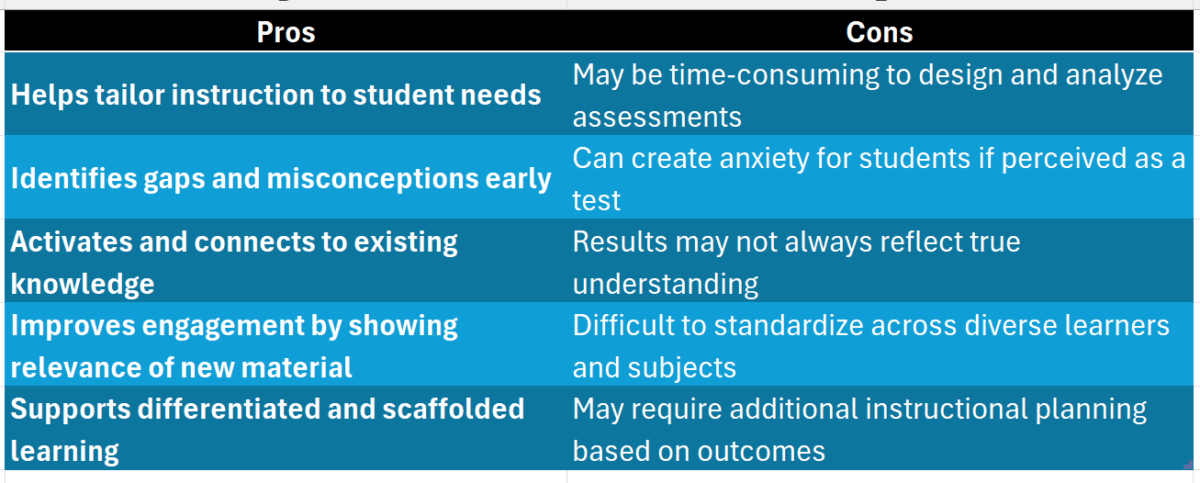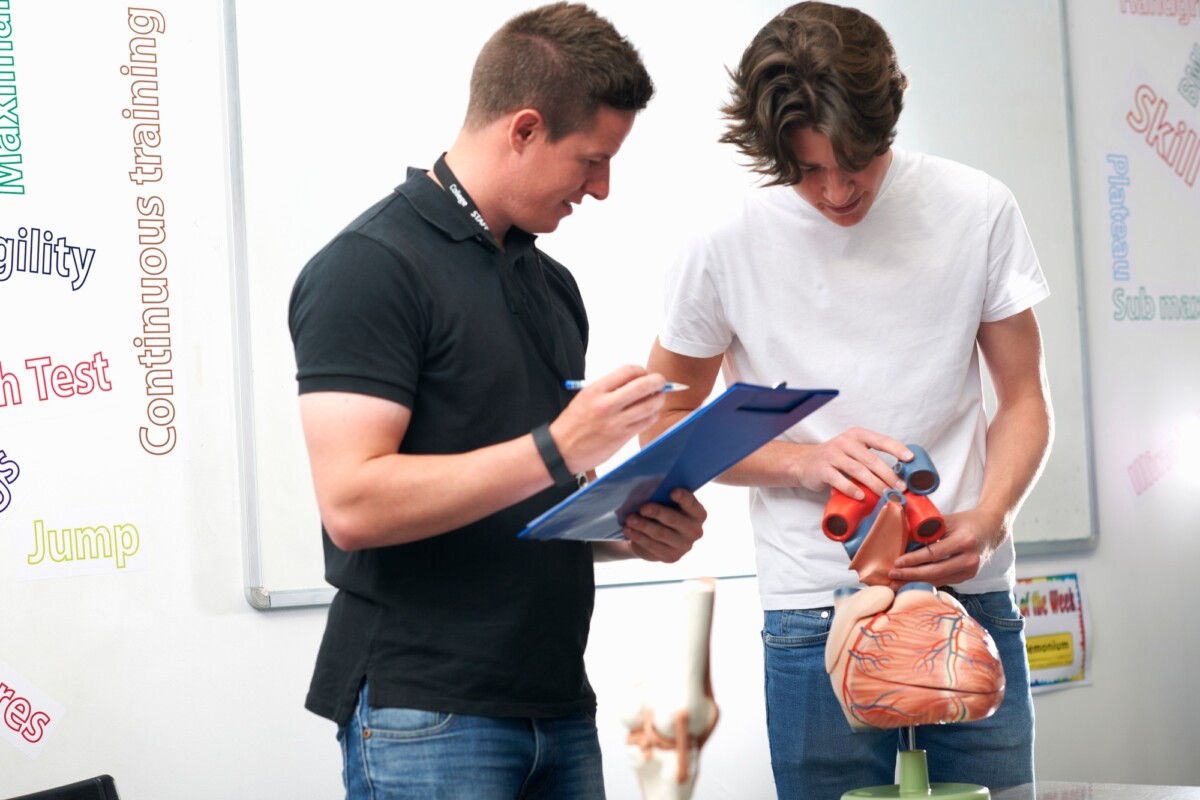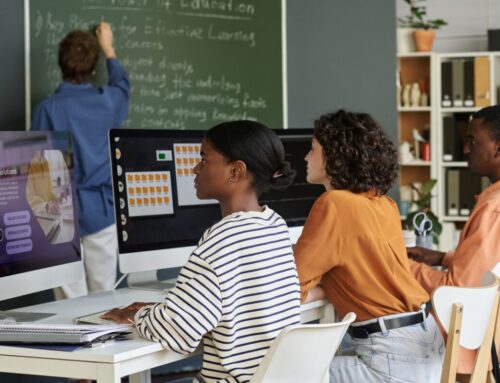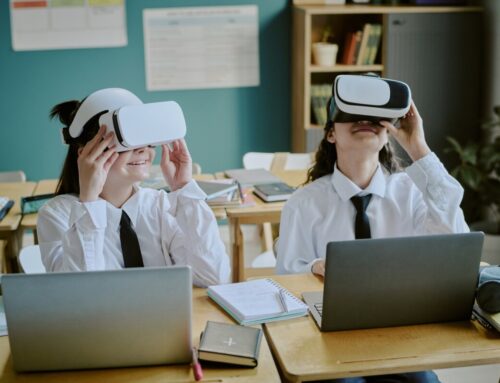
When planning a lesson, understanding what students already know is crucial. This is where assessing prior knowledge comes into play. By gauging students’ existing knowledge, teachers can tailor their lessons to meet the specific needs of their class, making learning more effective and engaging.
Why Assessing Prior Knowledge Matters
Assessing prior knowledge helps educators in several ways:
- Identifying Gaps: Teachers can pinpoint what students don’t understand, allowing them to fill those gaps before introducing new concepts.
- Building Connections: It helps students connect new information to what they already know, making learning more relatable and easier to grasp.
- Enhancing Engagement: When lessons are relevant to students’ experiences, they are more likely to participate actively.
For those considering a career in education, such as curriculum designer remote jobs, understanding how to assess prior knowledge is essential. During curriculum specialist interview questions, candidates may be asked how they plan to implement this strategy in their lessons. By demonstrating the importance of assessing prior knowledge, educators can create a more effective learning environment that benefits everyone.
Affordable, accredited education—Start now!
How Assessing Prior Knowledge Enhances Student Engagement

When it comes to lesson planning, understanding what students already know is like having a treasure map. By assessing prior knowledge, teachers can tailor their lessons to meet students where they are, making learning more relevant and engaging. This approach not only boosts confidence but also fosters a deeper connection to the material.
The Importance of Assessing Prior Knowledge
Assessing prior knowledge is crucial because it helps teachers identify gaps in understanding. This insight allows them to adjust their teaching strategies. For example, if a curriculum designer remote job requires creating engaging content, knowing students’ backgrounds can lead to more effective lesson plans.
Benefits of Engaging Students
- Increased Motivation: When lessons connect to what students already know, they feel more involved.
- Better Retention: Students are more likely to remember information that relates to their experiences.
- Tailored Learning: Teachers can focus on areas where students struggle, making learning more effective.
In interviews for curriculum specialist positions, questions often revolve around how to assess prior knowledge effectively. This skill is essential for creating lessons that resonate with students and promote active participation.
What Are the Best Methods for Assessing Prior Knowledge?
Assessing prior knowledge is like opening a treasure chest before a big adventure. It helps teachers understand what students already know, making lesson planning more effective. When educators know their students’ backgrounds, they can tailor lessons that build on existing knowledge, ensuring everyone is engaged and learning effectively.
1. Pre-Assessment Quizzes
These short quizzes can reveal what students remember from previous lessons. They’re quick and can be fun, helping teachers gauge understanding without putting too much pressure on students.
2. Class Discussions
Engaging students in conversations about a topic can uncover their thoughts and ideas. This method not only assesses prior knowledge but also encourages participation and collaboration among peers.
3. K-W-L Charts
K-W-L stands for ‘Know, Want to know, Learned.’ This chart allows students to express what they already know and what they want to learn. It’s a simple yet effective way to visualize their understanding and curiosity. By using these methods, curriculum designers can create lessons that resonate with students. Plus, for those in curriculum designer remote jobs, knowing how to assess prior knowledge is crucial for success. It’s also a common topic in curriculum specialist interview questions, highlighting its importance in educational settings.
The Role of Prior Knowledge in Differentiated Instruction
When it comes to lesson planning, understanding what students already know is like having a treasure map. This is where assessing prior knowledge becomes essential. It helps teachers tailor their lessons to meet students’ needs, ensuring that no one is left behind. After all, a curriculum designer in remote jobs must be adept at creating engaging content that resonates with students’ existing knowledge.
The Importance of Prior Knowledge
Assessing prior knowledge allows educators to:
- Identify gaps in understanding
- Build on what students already know
- Foster a more inclusive learning environment
By recognizing these elements, teachers can create lessons that are not only informative but also engaging. This is especially crucial for those preparing for curriculum specialist interview questions, where demonstrating an understanding of differentiated instruction can set candidates apart.
Benefits of Tailored Lessons
When lessons are designed with prior knowledge in mind, students are more likely to:
- Feel confident in their abilities
- Engage actively in discussions
- Retain information better
Incorporating prior knowledge into lesson planning is not just a strategy; it’s a pathway to success for both students and teachers. By making these connections, educators can create a dynamic learning experience that truly resonates with their students.
Can Assessing Prior Knowledge Improve Learning Outcomes?
Assessing prior knowledge is like unlocking a treasure chest of learning potential. When teachers understand what students already know, they can tailor lessons that build on that foundation. This not only makes learning more relevant but also boosts confidence, leading to better engagement and outcomes.
Why It Matters
- Personalized Learning: By gauging prior knowledge, educators can customize lessons to meet students’ needs. This is especially important for curriculum designers in remote jobs, where understanding diverse backgrounds is crucial.
- Effective Lesson Planning: Knowing what students already grasp helps in creating lessons that connect new information with existing knowledge. This connection is vital for retention and understanding.
- Identifying Gaps: Assessing prior knowledge allows teachers to spot gaps in understanding. Addressing these gaps early on can prevent confusion and frustration later in the learning process.
In interviews for curriculum specialist positions, candidates might face questions about their strategies for assessing prior knowledge. This highlights its importance in the educational landscape. Ultimately, when teachers assess what students know, they pave the way for more effective and enjoyable learning experiences.
Affordable, accredited education—Start now!
Strategies for Integrating Prior Knowledge Assessment into Lesson Plans
Assessing prior knowledge is like opening a treasure chest before starting a journey. It helps teachers understand what students already know, making lesson planning more effective. When educators tap into this knowledge, they can tailor lessons that connect with students’ experiences, making learning more engaging and relevant.
Use Quick Surveys
- Create short surveys or quizzes at the beginning of a lesson. This helps gauge what students remember about a topic.
- For example, if you’re teaching about ecosystems, ask students what they know about plants and animals in their local area.
Encourage Group Discussions
- Foster conversations among students. This allows them to share their ideas and knowledge with peers.
- Group discussions can reveal insights that help you adjust your lesson plans accordingly.
Implement Interactive Activities
- Use games or hands-on activities to assess prior knowledge.
- For instance, a simple matching game with terms and definitions can show what students already understand about a subject.
By integrating these strategies, teachers can create lessons that resonate with students. This not only enhances learning but also prepares them for future challenges, like those faced in curriculum designer remote jobs or during curriculum specialist interview questions.
How Degreesonline.education Supports Educators in Assessing Prior Knowledge
Assessing prior knowledge is like unlocking a treasure chest of understanding before diving into new lessons. When educators know what students already grasp, they can tailor their lesson plans to build on that foundation. This not only boosts confidence but also enhances engagement, making learning more effective and enjoyable.
Tailored Assessment Tools
- Interactive Quizzes: Degreesonline.education offers quizzes that help gauge students’ existing knowledge.
- Surveys and Polls: Quick surveys can reveal what students remember from previous lessons.
Professional Development Resources
For those in curriculum designer remote jobs, Degreesonline.education provides resources that help educators learn effective strategies for assessing prior knowledge. This includes sample curriculum specialist interview questions that can guide discussions about best practices in lesson planning. By utilizing these tools, educators can create a more personalized learning experience. This not only helps students feel more connected to the material but also allows teachers to adjust their methods based on real-time feedback. In turn, this leads to a more dynamic and responsive classroom environment.
Common Challenges in Assessing Prior Knowledge and How to Overcome Them
Assessing prior knowledge is like opening a treasure chest before a big adventure. It helps teachers understand what students already know, making lesson planning more effective. However, many educators face challenges in this process, especially when working remotely or during curriculum design. Let’s explore these common hurdles and how to tackle them!
Common Challenges in Assessing Prior Knowledge
- Limited Interaction: In remote settings, it can be tough to gauge students’ understanding through screens. To overcome this, use interactive tools like polls or quizzes to engage students actively.
- Diverse Learning Levels: Students come with varying backgrounds and knowledge. To address this, consider differentiated assessments that cater to different learning styles, ensuring everyone is included.
- Time Constraints: Busy schedules can make it hard to assess prior knowledge thoroughly. Try quick assessments or informal check-ins to save time while still gathering valuable insights.
By overcoming these challenges, curriculum designers can create more tailored lesson plans that resonate with students. This not only enhances learning but also prepares educators for curriculum specialist interview questions, showcasing their ability to adapt and innovate. Remember, assessing prior knowledge is not just a step; it’s a vital part of the journey to effective teaching!
Affordable, accredited education—Start now!
FAQs
1. What does “assessing prior knowledge” mean?
It refers to evaluating what learners already know before teaching new content.
2. Why is it important to assess prior knowledge?
It helps instructors tailor lessons, address gaps, and build on what students already understand.
3. When should prior knowledge be assessed?
It’s typically done at the beginning of a lesson, unit, or course.
4. What are common methods to assess prior knowledge?
Teachers use pre-tests, concept maps, KWL charts, class discussions, or quick quizzes.
5. Can prior knowledge be inaccurate?
Yes, students may have misconceptions, which should be identified and corrected early.
6. How can I use prior knowledge data to improve instruction?
Use it to group students, adjust pacing, revisit foundational concepts, or skip what’s already mastered.




